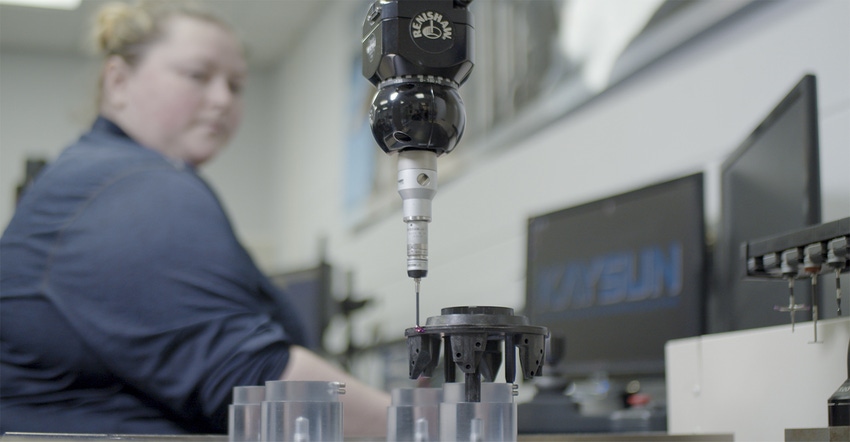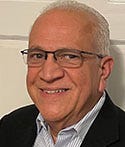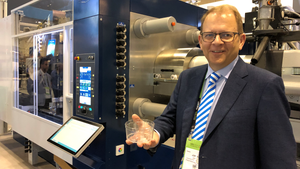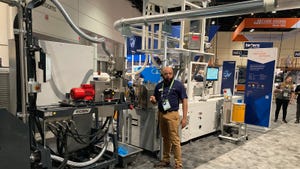MedAccred’s Singular Pathway to Medtech Quality and Regulatory Compliance
Companies engage with accreditation program to address challenges of expanding medical device regulations and customer requirements.
May 16, 2023

Justin McCabe and David Rosa
The size of the medical plastics market is projected to reach $54.29 billion by 2027, up from a base of $29.93 billion in 2019. The medical plastics market has been fueled in part by increased demand for medical devices in North America, Europe, and Asia Pacific.
At the same time, medical devices are becoming more complex, and this is driving a need for more sophisticated plastics manufacturing processes. It is driven by the speed of advances in technology and material science and their potential application to solving debilitating or life-threatening human conditions.
As governments try to keep pace with rapid changes in plastics technology and processes, there is an accompanying increase in the volume of regulatory requirements within the medical device industry, with a focus on quality and compliance related to plastics. The Food and Drug Administration (FDA) in the United States and regulatory bodies in the European Union and other regions and countries are continually introducing new or updated regulations to protect patients by ensuring the safety and efficacy of products. An estimated 22,000 new or updated regulations are enacted every year.
In search of critical process quality assurance
So, how should OEMs, contract manufacturers, and suppliers deal with the proliferation of regulations and increasing focus on compliance and quality? A growing number of companies have found the answer by engaging with the MedAccred program, a unique industry-managed approach to ensuring critical manufacturing process quality through the medical device supply chain, managed by some of the most important medical device companies in the world, including BD, Boston Scientific, Baxter, Edwards Lifesciences, Johnson & Johnson, Medtronic, Philips, Roche Diagnostics, and Stryker. The MedAccred program provides a framework to meet both quality and regulatory requirements.
MedAccred addresses the challenges of manufacturing high-quality medical devices. The program verifies the supplier’s compliance with industry standards as well as customer specifications. Unlike other accreditations, the MedAccred process takes a very deep dive into manufacturing processes as well as the entire end-to-end manufacturing supply chain. This program helps manufacturers improve quality issues in plastics processing, including injection molding, mechanical assembly, and extrusion, and confirms the information flow to sub-tiers, enhancing purchasing controls and minimizing the risk of product recalls.
A unique approach to quality
The uniqueness of the MedAccred program starts with the selection of auditors. Candidates must be experienced plastics critical process subject matter experts and go through a thorough vetting process. Auditors are interviewed and selected by a group of technical experts from the MedAccred OEM subscriber organizations. This is followed by training on the MedAccred audit criteria and by supervised training audits.
The audit criteria are detailed, technical, and unique, because they are developed by plastics subject matter experts from leading OEMs, contract manufacturers, and suppliers. The document takes the best practices from across multiple industry stakeholders and puts them in one place.
A key element of the MedAccred process is the job audit. In the case of a molded part, for example, job audits take very deep dives into every aspect of the manufacturing process, covering all steps from incoming raw material inspection to final packaging of the product and shipping. This exhaustive audit verifies all process parameters at the molding machine and ensures that ancillary equipment is within the validated range.
The final critical section of the MedAccred audit is a review of process validation. Process validation is a MedAccred requirement for all medical parts. The auditors verify compliance with installation and operational and performance qualification requirements.
Taken together, these MedAccred audit requirements help ensure that suppliers deliver quality products that comply with customer specifications.
Quality and regulatory benefits for OEMs and contract manufacturers
The MedAccred program can help medical device OEMs, contract manufacturers, and suppliers become better prepared for work in regulatory environments.
For example, the FDA lays down a set of regulations that outline current good manufacturing practice requirements, known as Part 820 Quality System Regulation, which medical device manufacturers must follow with regard to their quality system. Section 820.50 specifically deals with purchasing controls. This section states: “Each manufacturer shall establish and maintain procedures to ensure that all purchased or otherwise received product and services conform to specified requirements.” It goes on to detail requirements for the “evaluation of suppliers, contractors, and consultants.”
Through the MedAccred program, subscriber OEMs can demonstrate this compliance, as well as “the type and extent of control to be exercised over the product, services, suppliers, contractors, and consultants, based on the evaluation results.”
These purchasing controls are evidenced through the MedAccred program: To become a MedAccred-accredited supplier, a company must meet the stringent industry-agreed critical process quality standards as approved by the MedAccred OEM subscribers. The MedAccred program maintains a database of accredited suppliers, documenting those companies that have achieved and maintained MedAccred accreditation. The database is a tool that MedAccred subscribing OEMs can use to oversee their supply chain and includes information on the status of each accredited company’s quality and compliance. For example, it reports on how nonconformance is being addressed and the corrective actions that have been implemented.
Benefits for suppliers
MedAccred-accredited suppliers can demonstrate that they are meeting the very highest industry-agreed standards in critical processes as well as requirements set forth by the OEMs participating in the MedAccred program. Plastics injection molding suppliers, such as PTA Plastics in Colorado, Kaysun Corp. in Wisconsin, and Flex Medical Molding (Shenzhen) Co. Ltd. in China, are all recent examples of companies that have benefitted. MedAccred suppliers typically report increases in product quality and reduction in defects after engaging in the MedAccred audit process. Becoming an accredited supplier, and being included on the MedAccred Qualified Manufacturers List, means that the supplier is immediately recognized by subscriber OEMs as having attained an elite quality status. There are also business growth opportunities, with a large number of MedAccred suppliers reporting an increase in business revenue as a direct result of MedAccred accreditation.
For plastics-related critical manufacturing processes, while suppliers at Tier 2 and below are not typically inspected by regulatory authorities, the OEMs certainly are, which is why OEMs require good oversight of their supply chains and assurances that lower tier suppliers are complying with industry-agreed quality critical processes that also meet customer requirements. Companies that can demonstrate compliance, therefore, also help their OEM customers meet regulatory requirements and will be looked upon favorably.
Working with regulators
Beyond the accreditation process, the MedAccred program has been collaborating with the FDA for some time on areas such as sterilization and, most recently, resiliency in the supply chain. Through the Best Practices in Supply Chain Resiliency and Quality Working Group set up in late 2022, which MedAccred chairs, the program is working with the FDA and US Department of Commerce, as well as the wider medical device industry and trade associations, to further develop rigorous oversight of critical manufacturing processes and to provide greater visibility of the overall supply chain.
About the authors
|
Justin McCabe, MA, serves as Operations Manager, MedAccred, for PRI, where he has been for 12 years. He co-leads the Best Practices in Supply Chain Resiliency Working Group with participation from the FDA, US Department of Commerce, MDIC, and medtech companies. McCabe also supports the management of the Medical Device Manufacturers MedAccred Accreditation Pathway (MedMMAP), a program funded by the Department of Commerce that helps small and medium-sized US manufacturers on their MedAccred journey. His e-mail address is [email protected].
|
David Rosa serves as Plastics Medical Devices Staff Engineer, MedAccred, for the Performance Review Institute (PRI). He joined PRI in 2017 as a critical process auditor and subject matter expert, covering the injection molding, mechanical assembly, and extrusion processes. His background is in mechanical engineering (MSME) with extensive experience in the plastics industry in manufacturing and quality management. Rosa implemented a statistical quality management system for a thermoformer manufacturing more than one billion frozen food trays per year and has process experience in injection molding, injection blow molding, extrusion, thermoforming, and extrusion blow molding. He has worked on plastic part designs for the automotive, consumer, and medical device markets.
You May Also Like



